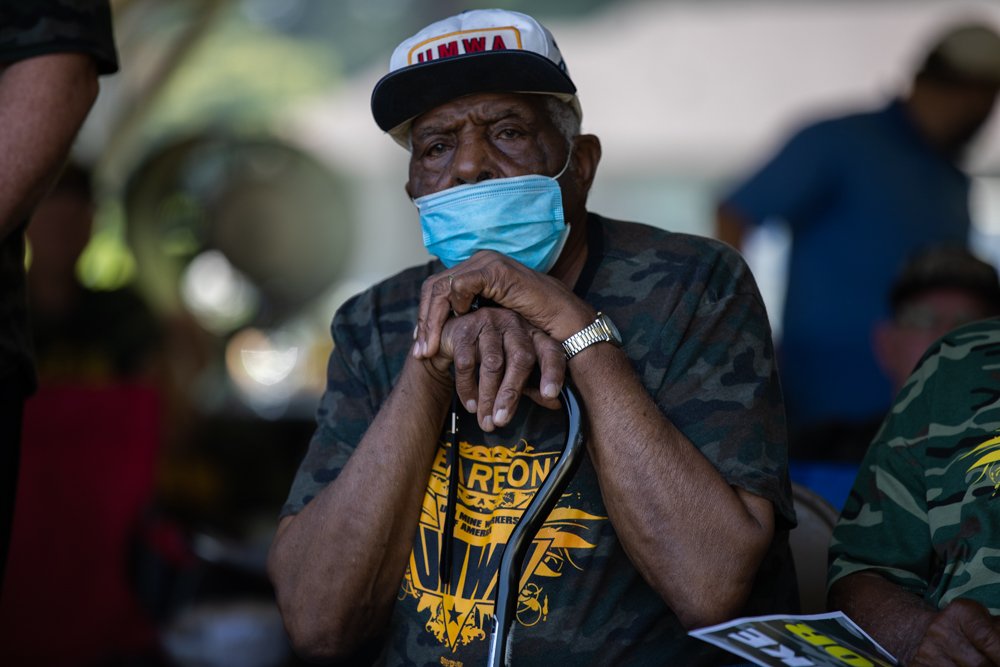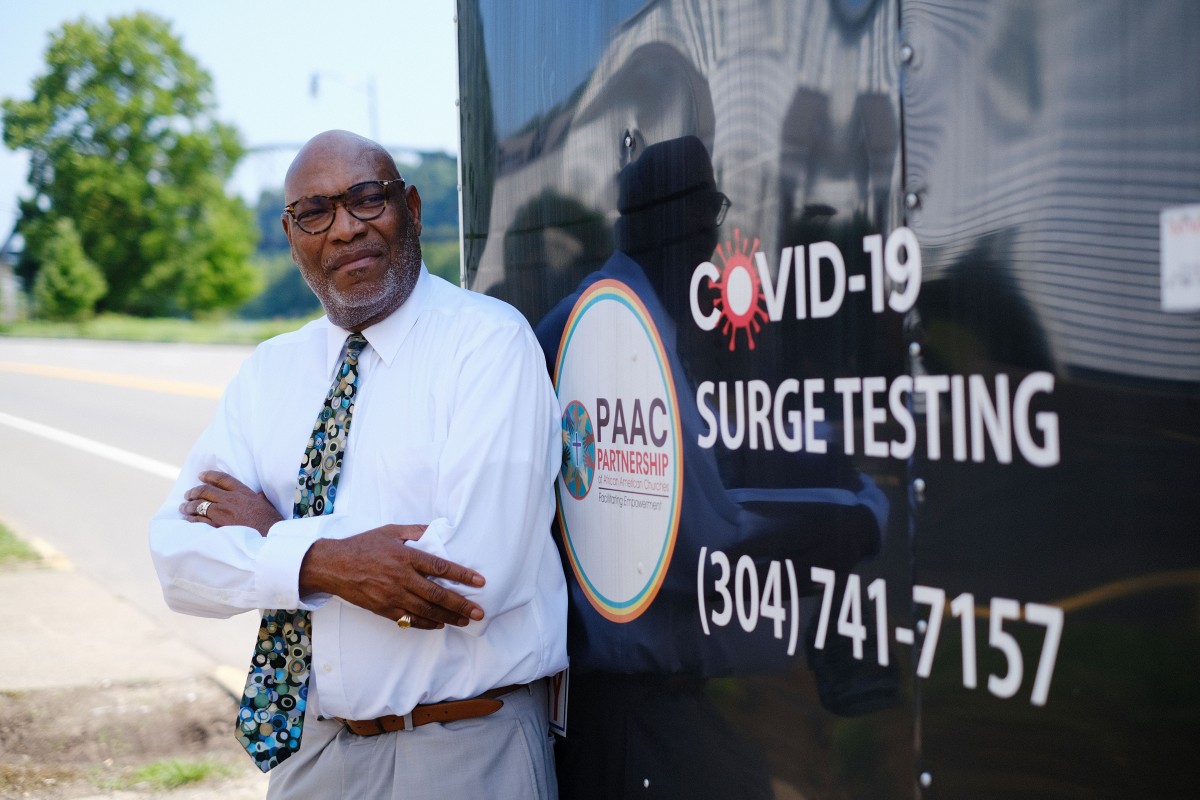In 2019, local activists succeeded in stopping the construction of a new federal prison in Letcher County, Kentucky.
The prison was on track to be the most expensive federal prison ever constructed, with $510 million in allocated funding. The project had a powerful advocate in Kentucky Congressman Hal Rogers, who had already overseen the construction of three prisons in eastern Kentucky. However, a powerful grassroots campaign resulted in a federal lawsuit by both prisoners and activists that spelled the end for the new prison.
Why did this prison spark such an ardent response from the community?
Prisons are often hailed as a supposed panacea for depressed areas like Letcher County – where a third of the population lives below the federal poverty line – because they provide steady employment, can be placed in environmentally degraded areas and contribute to the American justice system. But in reality, both academic studies and the lived experiences of local people have shown the shortcomings of a reliance on the prison industry.
In the midst of this contradiction, central Appalachia has emerged as a prime location for federal and state prisons, even as such facilities continue to contribute to the unique vulnerability and exploitation of the region.
The Rise of the Carceral State
The United States has long been labelled a carceral state, a government-sanctioned network of formal institutions, ideologies and structural biases that result in discriminatory, systemic and sometimes arbitrary incarceration patterns. There are varying degrees of incarceration as well, where an individual does not have to be physically imprisoned to have their freedoms curtailed in the name of punitive justice.
As of 2018, there were approximately 2.3 million incarcerated people and another 4 million people on parole or probation, according to the Department of Justice. Harsh punishments are disproportionately handed to people of color and of lower socioeconomic status, further perpetuating the false narrative that those groups are more prone to crime and deserve to be locked away.
The symbiotic relationship between the country’s justice system and prison industry has grown stronger in recent decades with an increase in both incarceration rates and public scrutiny of legal and carceral injustices. Organizations such as Black Lives Matter and the prison abolition movement have publicized widespread and severe problems with the implementation and execution of current criminal law. While these efforts are fueling change, the far-reaching effects of the current penal system continue to impact the lives of those imprisoned, their families and the people who are given control over them.
Why Appalachia?
There are three primary contributing factors to Central Appalachia’s popularity as a prison hotspot: the economic vacuum left by the decline of coal, an abundance of open spaces on the landscape left behind as extractive industries have pulled out of our communities, and the cultural marginalization of the region.
The economic monopoly created by mining and logging in Appalachia and their subsequent rapid declines over the past two decades resulted in a need for relatively well-paid stable jobs with benefits. With their government funding and highly touted social utility, prisons provided a convenient solution.
Not only did the downfall of the coal industry justify an increase in prisons because of the employment they can provide, but the mining processes created flat open sites nestled within the mountains on which prisons could be built. The federal Surface Mining Control and Reclamation Act of 1977 lays out guidelines for restoring mining lands, allowing the land to be used for “…an equal or better economic or public use,” Prisons are viewed as a better use for these ready-made construction sites, despite concerns about the wellbeing of the land and the safety of those forced to reside on it.
Several of the 29 federal and state prisons constructed in Appalachia since 1989 have been built on top of old mountaintop removal sites, including USP Big Sandy, FCI Manchester, and FCI McDowell in Kentucky; Wallens Ridge State Prison and Red Onion State Prison in Virginia; FCI Gilmer in West Virginia; and SCI Fayette in Pennsylvania.
The third factor contributing to the carceral state of Appalachia is often overlooked, or at least downplayed. Designating an area as a dumping ground for all things undesirable inherently reflects how the area is valued. This reflection is usually unspoken and, as such, it tends to fly under the radar and not be subjected to the appropriate scrutiny.
In this case, central Appalachia has been relegated as the place in which to hide away prisoners. The underlying factor is the continued marginalization of the region and the decision that Appalachia has no real future or active agency and thus, its only real purpose is to save the rest of the country from unpleasant things, like mining or the penal system.
This is not to say that the perception of prisoners as inhuman or unwanted is justified, rather that the carceral state has allowed for prisoners to be forgotten and degraded. Therefore, their exile to Appalachia speaks to general feelings about the worth of the area and its people.
Appalachia has become a sort of real-world parallel to The Island of Misfit Toys, from the Rankin and Bass Christmas specials, where the value of the people and the region have been decided by others with more power.
When Reality Sets In
While the realities that have enabled Appalachia to become a prison haven are troubling enough, the effects of the prisons on their surrounding areas have also failed to meet the expectations of their local communities.
Economic studies show that prisons do decrease levels of unemployment in the communities they are located, as often promised, but they also show existing and newly built prisons result in a decrease in per capita income, as well as an increase in poverty levels. That means that likely higher paying prison jobs are given to new employees from outside the area while local residents are given lower paying jobs with fewer benefits.
While prisons provide good business for some sectors in the community, such as automotive repair businesses, the large and widespread economic boosts with which they are credited repeatedly fail to materialize.
A heavy reliance on the incarceration of some for the survival of others also takes a toll on local communities. Appalachia has a long history of hard work, self-sufficiency, and a strong sense of independence and that can be difficult to reconcile with livelihoods that rely on the dependency and captivity of others.
Furthermore, it raises the debate of whether working in a verifiably racist system that also negatively impacts the innocent families of prisoners makes prison employees complicit in the perpetrated harms. Jack Beck, a former volunteer with the national Prisoner Visitation and Support program, noted in an interview how staffing cuts from Trump administration policies had resulted in an inability to give adequate medical attention to prisoners and a tendency to put prisoners in Special Housing Units.
“Don’t get me wrong, the people I met in prison, almost all of them deserved to be there,” said Beck. “But they are human beings, and we can’t lock the door and walk away and forget about them as human beings…they are entitled to some dignity.”
While many employees have benefitted from these jobs, prison workers, especially carceral officers, are subjected to a slew of physical and mental stressors, leading to higher-than-average levels of diabetes, heart disease, PTSD, suicide rates and more. The severity of these effects often leads to increased tensions with their families and acquaintances. This can have significant consequences for a family who might have multiple members employed in prisons.
Prisons are entrenched in central Appalachia now, and it is unlikely that will change any time soon. However, the existence of current prisons does not mean that new prisons will inevitably be built, as evidenced by the success of the protestors in Letcher County. They provide jobs and utilize old mining spaces, but at a large cost to the prisoners, employees and local communities.
Appalachia has no shortage of wonderful and enticing things: the mountains, the music, the food, the festivals, to name a few. With such environmental and cultural wealth, prisons should not be seen as the economic or social cornerstone of Appalachian progress that some of our political leaders promote. It is time to turn away from economic monopolies that harm their employees and surrounding communities and look towards the strengths of Appalachia.
Emma Kelly is a graduate student at the University of Tennessee and studies human rights and agency in Appalachia. Her current work focuses on community responses to environmental problems in the region. She is a native of Middlesboro, Kentucky, and currently splits her time between Knoxville and southwest Virginia.



